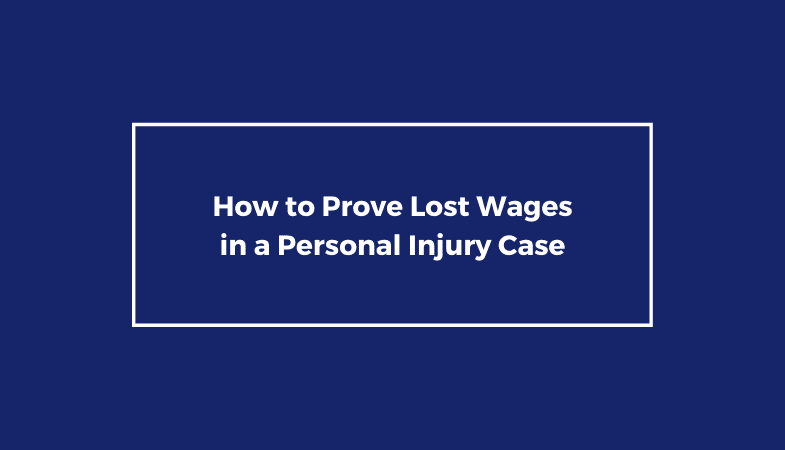If you suffer injuries in an accident that someone else’s negligence or recklessness caused, you can struggle with significant physical, financial, and emotional damages that you were not expecting. Under California state law, you have the right to claim compensation for these damages as long as you can prove that the at-fault party was liable — and you can receive funds for medical expenses, the development of mental health conditions, and lost wages during your recovery time. Proving lost wages can be complex, but a Bakersfield injury attorney can help guide you through this process.
What Are Lost Wages?
After an accident, you may suffer from significant injuries that prevent you from going back to work. You might spend weeks in the hospital or at home recovering from your injuries, and in some cases, the nature of the injuries you suffered could prevent you from returning to work altogether. In these situations, you and your family can experience serious financial hardship as your stream of income runs dry.
In a personal injury lawsuit, you can claim compensation for the wages you lose during recovery and, depending on the nature of your case, you may be able to claim funds for the loss of future earnings. Proving past wages is significantly easier than proving the loss of future wages, but these funds are necessary for you and your family’s well-being.
How to Prove Lost Past Wages
To claim lost past wages in a personal injury case, you will need to prove that you were unable to work as a result of the injuries you sustained in the accident. You and your attorney will first need to establish that your injuries prevented you from returning to work — this will usually consist of testimony from a medical expert as well as a presentation of your medical records.
After you prove this point, you will need to provide evidence establishing that you were absent from work and lost your pay as a result. You will also need to provide documentation that calculates the amount of wages you would have earned had you been able to remain on the job. Your employer will usually provide this evidence, and may need to give testimony as well.
Proving Future Loss of Earnings
Establishing future loss of earnings in a personal injury case can be difficult, since you will likely recover partially from the injuries as time goes on, allowing you to return to work on a part or even full-time basis. However, returning to work may not occur for years to come — and you will need financial support up until that point.
First, the court will look at your injuries and determine how likely you are to return to your previous work, and if the injuries’ impacts harms your earning potential. You will need to supply medical evidence and testimony to discuss your recovery potential, when you could reasonably return to work, and the extent to which you will not be able to perform your current duties.
After you provide sufficient medical evidence, the court will look at the difference between your wages pre-accident and your earning potential after the accident. The court will also discuss how long you are likely to keep working; most courts will not award future lost earnings past retirement age.
Do You Need a Personal Injury Attorney?
Proving lost wages, especially loss of future wages or earning potential, can be very difficult without legal training and experience. Connecting with the medical experts who can provide testimony on your behalf alone is difficult, and when you factor in the other elements you have to establish to prove liability, filing a lawsuit can be daunting.
Hiring a personal injury attorney to assist you with your case can help relieve these pressures and provide you with the resources and knowledge necessary to prove your case. Your attorney will work closely with you to gather all necessary evidence, connect with medical experts and other expert witnesses, and advocate aggressively for your post-injury needs. If you have not hired an attorney already, contact one as soon as possible.
